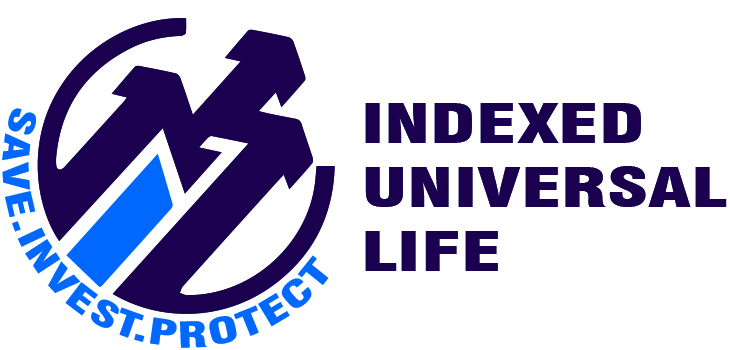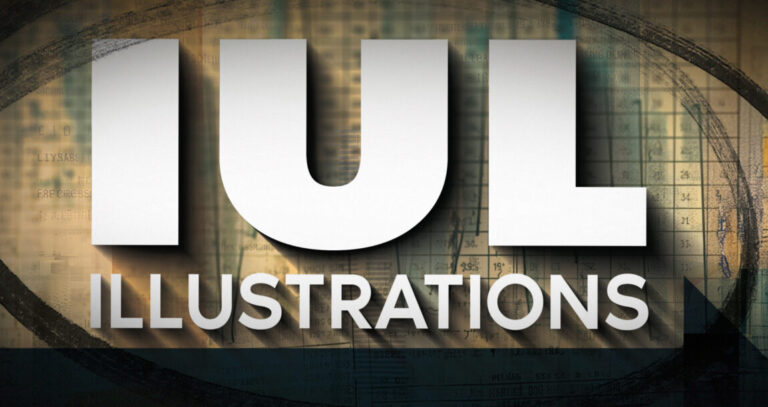Indexed Universal Life Insurance (IUL) vs. 401(k)s in 2024
Written by Graham Ray
Last Updated: Sep 11, 2024
The MarketWatch Guides team compares and contrasts indexed universal life insurance (IUL) and 401(k)s.
Indexed universal life insurance (IUL) is a life insurance product that offers the opportunity for investment growth, while a 401(k) prioritizes long-term savings with employer-matching features. Both types of plans offer tax advantages, though the best option between the two will depend on your specific situation and financial goals. We at the MarketWatch Guides team recommend consulting a financial advisor to help you make an informed decision.
Why you can trust MarketWatch Guides: Our writers and editors strive to provide factual, unbiased reporting on the life insurance industry on the strength of dozens of hours of research. We also consult with independent industry experts and use a comprehensive methodology for rating the best life insurance companies.
rance?
Indexed universal life insurance (IUL) is a type of permanent life insurance that allows for more flexibility than some other policies such as whole life and term life. An IUL lets you choose your premiums and how much cash value you want to place in a fixed-rate or equity-indexed account. The cash value component of IUL policies is commonly tied to indexes such as the S&P 500 or Nasdaq-100.
As with all life insurance policies, indexed universal life plans offer a death benefit to your named beneficiaries in the event of your death. IUL policies typically provide a measure of predictable financial stability by capping your market returns and guaranteeing a minimum interest rate. Some insurers also offer fixed-rate accounts, which provide added options to manage the policy’s performance. When we surveyed 1,000 life insurance policyholders nationwide in February 2024, about 12% said they purchased a universal life insurance policy.
What Is a 401(k)?
A 401(k) is a type of employer-sponsored retirement savings plan that lets you contribute a portion of your paycheck into an investment account. A 401(k) offers a tax-free method to grow your retirement income. You can choose as little as you want to contribute up to a maximum contribution limit set by the IRS, which is $23,000 as of 2024. A typical 401(k) allows employees to invest in mutual funds or exchange-traded funds (EFTs) rather than individual companies.
Your employer may offer to match your 401(k) contributions, and some plans require employers to contribute. The maximum an employer can match is up to 6% of an employee’s contribution. Once you open a 401(k) and start contributing money into the account, the cash is yours. If you leave your employer who offered the 401(k), you might have the option to roll over your 401(k) to a new employer’s 401(k) program or into an individual retirement account (IRA).
Key Differences
View the table below to learn some key differences between indexed universal life insurance and 401(k) plans.
| Indexed Universal Life Insurance (IUL) | 401(k) | |
| Tax benefits | Tax-free cash growthCan make early tax-free withdrawals and loansDeath benefit is tax-free | Tax-free contributions lower your taxable incomeTax-free employer contributionsInvestment gains do not get taxed until you receive distributions |
| Cost | Premium cost and fees vary by plan, coverage amount, age and health rating class | You decide how little or how much to contribute. The IRS sets a maximum contribution level, which is $23,000 for 2024 |
| Risk | Downside risk is capped; however, returns are also usually capped | No protection from market downturns, but also no cap on returns |
| Death benefit | Yes | No |
Pros and Cons of IUL
Indexed universal life insurance is a more complex type of coverage than traditional term and whole life policies. Here are some of the benefits and potential drawbacks of an IUL policy:
Pros
Provides dual benefits of a life insurance policy and cash value growthOffers tax-free capital gains, cash withdrawals and loansOffers flexibility to adjust your premiums, riders, death benefit and investment risk
Cons
Companies often cap gains at a certain amountHigher fees can subtract from your investment return
Pros and Cons of a 401k
Having a clear understanding of the potential pros and cons of a 401(k) can benefit those considering retirement savings options.
Pros
Offers no limits on growth potential, unlike an IUL policyEmployers often match contributions to accelerate investment growthContributions are pre-tax and reduce your owed income tax
Cons
You will get penalized for withdrawing funds before age 59 and a halfReturns are subject to the risk of market downturns
How To Choose Between IUL and 401(k)
If you are deciding between an IUL policy and a 401(k) for retirement savings, your particular financial situation will play a significant role. Both types of plans offer tax benefits and exposure to the stock market. Indexed universal life insurance plans typically offer lower risk and allow for early cash withdrawals that you can’t make with a 401(k). Only indexed universal life insurance policyholders receive a death benefit. Here are some scenarios that might fit both types of investments.
IUL Is Best for You If:
- You have a high net worth: An IUL plan can help lower your taxable income and offers tax-free capital gains, withdrawals and loans.
- You want dual benefits: For some people, an IUL policy can offer a versatile way to address their need for life insurance and investment income at the same time.
- You’re self-employed or retired: If you don’t have an employer who offers the benefits of a 401(k), then IUL may offer a better choice for you.
401(k) Is Best for You If:
- You want long-term growth: You are penalized for withdrawing early from a 401(k), typically before age 59 and a half. This type of retirement account is designed to provide years of investment growth to build your nest egg.
- Your employer offers a match: If your employer provides matching contributions, then your 401k savings can grow faster. Not taking advantage of an employer match essentially leaves free money on the table.
- You want a lower-cost savings plan: With a 401(k), you decide how much to contribute and don’t have to pay for the added benefit of life insurance.
Is IUL or a 401k the Best Option for You?
If you are looking for investment options designed strictly for retirement savings, we recommend a 401(k). A 401(k) reduces your taxable income by allowing you to contribute pre-tax dollars into your account. These plans often provide employer-matching contributions and the potential for greater tax-deferred growth, with no limits on investment earnings. A 401(k) is a true retirement investment fund that penalizes you for making early withdrawals before retirement, usually at age 59 and a half.
Indexed universal life insurance offers tax-free withdrawals and capped market losses, but typically has high premium costs and additional fees. If you are looking for the dual benefit of providing financial protection to loved ones and investment value, then an IUL plan could benefit you. IUL policies are very popular among life insurance consumers. According to industry trade association LIMRA, indexed universal life premiums represented 24% of all life insurance premiums sold in 2023.
Overall, the better option between an IUL policy and a 401(k) plan depends on your particular situation, needs and financial goals. A licensed professional specializing in financial products can help guide you through these and other types of retirement plans.






